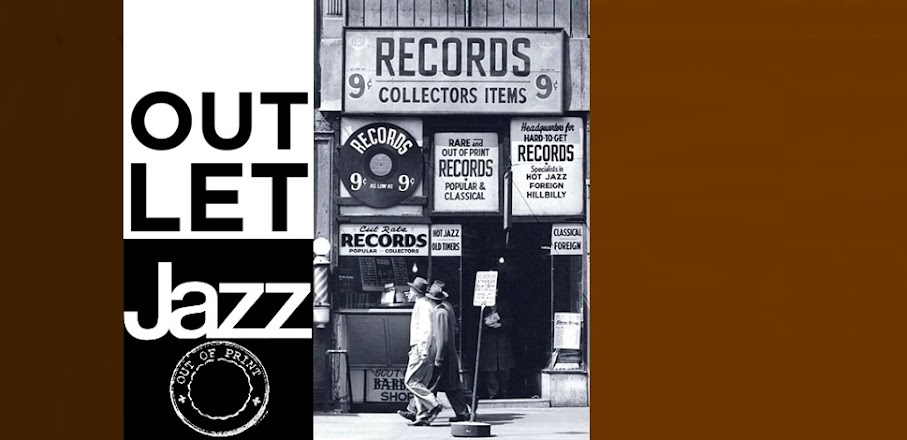Hal McKusick
The Jazz Workshop
Hal McKusick is the discerning type of musician who is disturbed when he finds monotony in a jazz set,particulary so if he detects it in his own collections. So, in laying the framework for this Workshop album, he held to variety as a keynote. One way to achieve variety, he felt, would be to give representation to several composers. He chose the six composers whose works he plays on this disc because he believes that they represent inventive thinking in jazz. Furthermore, he was curious to find out what they would do with the eight (or nine) instruments he put at their disposal on six of these selections. This instrumentation (trumpet, trombone, alto sax, baritone sax, one or two guitars, tuba, string bass and drums) is close to the famous Miles Davis Nonet of 1949. Davis, however, added a French horn which changed the ensemble coloring considerably. The particular grouping of instruments that McKusick selected (for reasons of which he is not certain except that he could hear in his mind's ear how they would sound and he liked what he heard) was completely new to all the writers.
One more thing might be noted about this set: It's McKusick's album but there are no compositions by McKusick. Here's Hal's reasoning: "I find it more refreshing and interesting to play other people's stuff. I prefer to do my writing for others". *John S. Wilson (liner notes)*
This is the most important of Victor’s Jazz workshop series thus far and the one that most fits the "workshop" connotation. It also demonstrates the musical necessity for Fred Reynolds to continue the workshop, particularly if future sets can be planned with the thoughtfulness, thoroughness —and time—hat this received.
For this album, McKusick wisely chose six diversified writers who score from their experience within jazz. The writing credits are: Johnny Mandel (track 1); Russell (tracks 2, 5, 7); Jimmy Giuffre (tracks 4, 8, 11); Gil Evans (tracks 3, 10); Manny Albam (track 6), and Al Cohn (track 9). Russell, Giuffre, and Evans have particularly been among the key workers in providing jazzmen more challenging written contexts within which to blow and grow, and Mandel could be.
All the scores allow breathing space for soloists and ensembles while stimulating both the individual and the group via the tension-challenge of fresh, idiomatic structural material that makes the blowing more meaningful by making it part of a more significant, more interrelated, more durable whole.
I was most moved by Russell, Evans, and Giuffre, particularly by Russell’s extraordinarily evocative, functionally dramatic "John Brown" the longest work in the set. And the one apiece by the other writers were also effective.
The musicianship of all the players is excellent. For McKusick, this is the summit of his jazz achievement to this point as an altoist. Farmer, who can make almost any scene, proves how strong a choice he was for this date. Osie and Milt project the strength and flexibility required for their assignments, and Galbraith is magnificent throughout. The others also contribute importantly.
This program is a reason for pride on the part of everyone involved, including Jack Lewis who set it going but who gets not one mention in the notes. John Wilson’s liner is not up to his standard. The personnel is not completely listed nor clearly given (by omitting Barber, for one example, octets turn into septets). More seriously, Wilson failed to recognize the significance of this LP in the context of contemporary jazz concern for more original form and, as a corollary, does not provide enough actual writing details. Don’t miss this one. It’ll be a subject for study —and enjoyment— for a long time. *Nat Hentoff*
1 - Tommy Hawk
(Mandel)
2 - Lydian Lullaby
(Russell)
3 - Blues For Pablo
(Evans)
4 - Just Leave It Alone
(Giuffre)
5 - Miss Clara
(Russell)
6 - Alto Cumulus
(Albam)
7 - The Day John Brown Was Hanged
(Russell)
8 - On Score And Eight Horns Ago
(Giuffre)
9 - Ain't Nothin' But A Memory Now
(Cohn)
10 - Jambangle
(Evans)
11 - The Blues Train
(Giuffre)
#2, #7, #9:
Hal McKusick (alto sax), Barry Galbraith (guitar), Milt Hinton (bass), Osie Johnson (drums).
Recorded in New York City, March 3, 1956.
#3, #6, #10:
Art Farmer (trumpet), Jimmy Cleveland (trombone), Hal McKusick (alto sax), Gene Allen (baritone sax), Barry Galbraith (guitar), Jimmy Raney (rhythm guitar), Milt Hinton (bass), Osie Johnson (drums), George Russell (tambourine [#3]).
Recorded in New York City, April 3, 1956.
#1, #5, #8:
Art Farmer (trumpet), Jimmy Cleveland (trombone), Hal McKusick (alto sax), Sol Schlinger (baritone sax), Barry Galbraith (guitar), Milt Hinton (bass), Osie Johnson (drums).
Recorded in New York City, April 4, 1956.
#4, #11:
Art Farmer (trumpet), Hal McKusick (alto sax), Barry Galbraith (guitar), Teddy Kotick (bass), Osie Johnson (drums).
Recorded in New York City, December 31, 1956.


Gracias blbs.
ReplyDeleteGracias
ReplyDeleteMuchas gracias
ReplyDelete